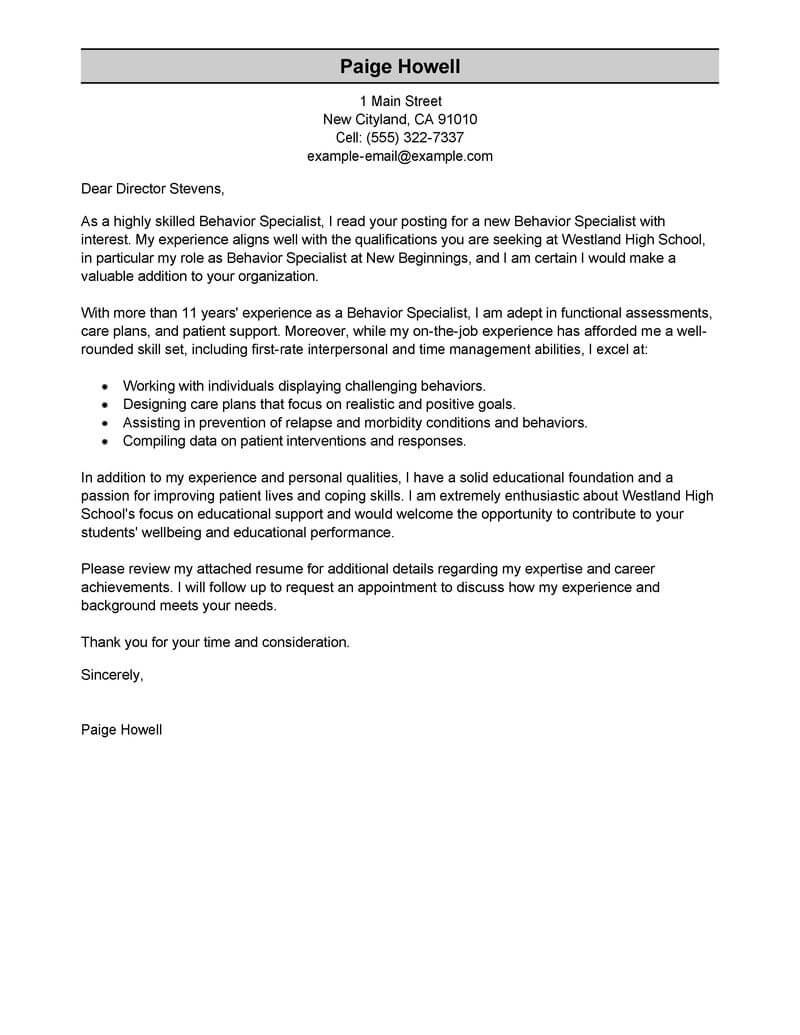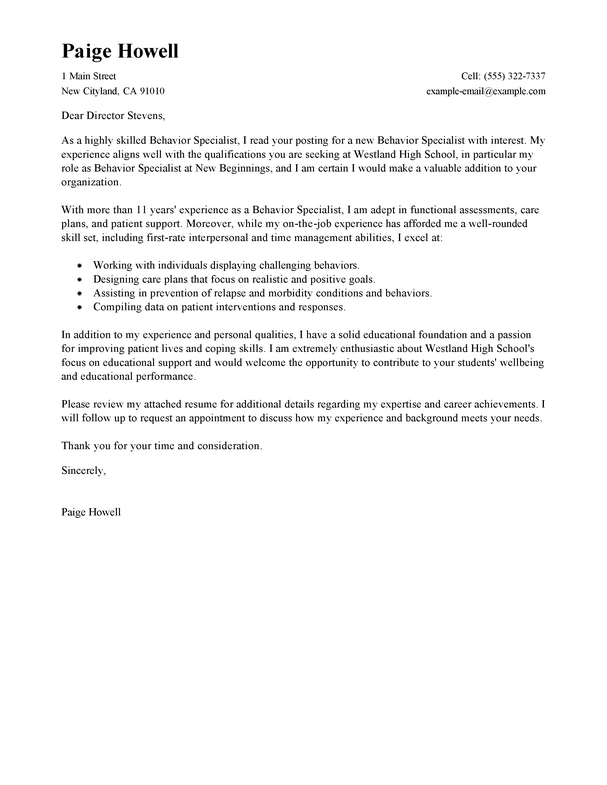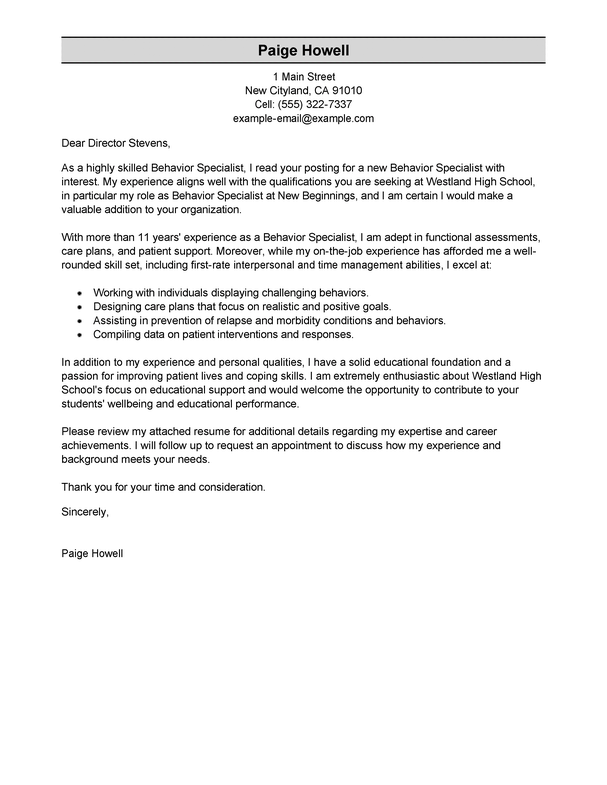Best Behavior Specialist Cover Letter Examples
Published: Friday 24th of March 2017; Words Count: 1050
A cover letter is an essential piece of your job application and should not be overlooked or downplayed. Catch the attention of hiring managers by following the best practices outlined in our behavior specialist cover letter example and the do’s and don’ts that follow.
- Do mention clinical skills with relevance to the position. If it’s unclear what the company wants, paste the job description into an online tool such as Wordle to see which words stand out.
- Don’t repeat your resume. Use the cover letter to highlight skills and experiences of your background in psychology that you weren’t able to include elsewhere.
- Do look for inspiration by searching for examples of other cover letters; sometimes all you need is some help getting started.
- Don’t write in a negative manner about other jobs, other applicants or other companies. Keep the focus positive and keep it on yourself.
- Do consider adding a headline. It can help you stand out in a way that’s not pushy or overboard.
- Don’t start your letter by introducing yourself; your name should already be prominent on your resume. Start right in with the benefits you bring to the position.
Behavior Specialist Advice
What does it take to become a behavior specialist? Patience, compassion, toughness–and a great cover letter. These cover letter examples will focus on the specific skills and attributes you’ll need to get hired for this challenging but rewarding job working with young people. Designed to show you the elements of an effective behavior specialist cover letter, these cover letter examples are the perfect first step toward building a job-winning cover letter of your own.

Cover Letter Tips for Behavior Specialist
No matter where you are, job hunting follows some similar patterns. These tips can help you in your search.
1. Take matters into your own hands. While jobs as a Behavior Specialist are rising very sharply, heavy unemployment is still creating large competition. A proactive approach can lead you to better understand employers in the region and give you a few extra advantages.
2. Let passive searching help you too. The self-sufficient hunt should not preclude the use of online tools and the involvement of friends, family and other contacts. If you let these resources search passively while you hunt actively, your prospects will improve accordingly.
3. Look deeply for opportunities. Bad news is prevalent, and the improving market is still on a back foot. A struggling company or employer can be a chance for redemption if you genuinely have solutions to offer.
4. Prepare for a long search. You may face rejection. Discouragement is your worst enemy. A growing market means that success is only a matter of time as long as you can maintain a healthy outlook and continue to look for ways to improve yourself and your methods.
5. Don’t overlook your cover letter. Many times this will be your main point of contact or first conversation with an employer. If your cover letter can speak for you correctly, it will get your foot in the door.

Behavior Specialist Job Seeking Tips
When you apply for jobs as a Behavior Specialist, or anywhere else, your cover letter has the opportunity to set you up for success. These general tips can help you frame a mindset that will produce a strong submission.
1. Streamline for the reader. Every piece of format should have one goal: make it easy to read and remember. Many managers are bombarded by a lot of applications, making the temptation to skip through a few boring cover letters strong.
2. Use bullets. Dense blocks of words are the easiest way to make a boring section. Bulleted lists present the same information in a more efficient manner.
3. Avoid obscure formats. Strange colors, unnatural spacing and hard-to-read fonts are all pitfalls that fail to streamline the experience. You can and should play with the layout, but make sure it is one that promotes the flow of the document and does not distract the reader.
4. Information should be ordered by importance. In general your sections should read in the order of summary, highlights / accomplishments, experience , education and then other. If one of these sections (other than the summary) is weak, it might be reasonable to move it down on the list. Information within each section should also stick to this principle.
5. Avoid superfluous information. Jobs older than 15 years, redundant information and even using personal pronouns like me and I are all unnecessary. In the case of old jobs, they can be listed to complete your work history, but there is no need for elaboration. A cover letter should stick to one to two pages, so your focus should be on making every word count.






